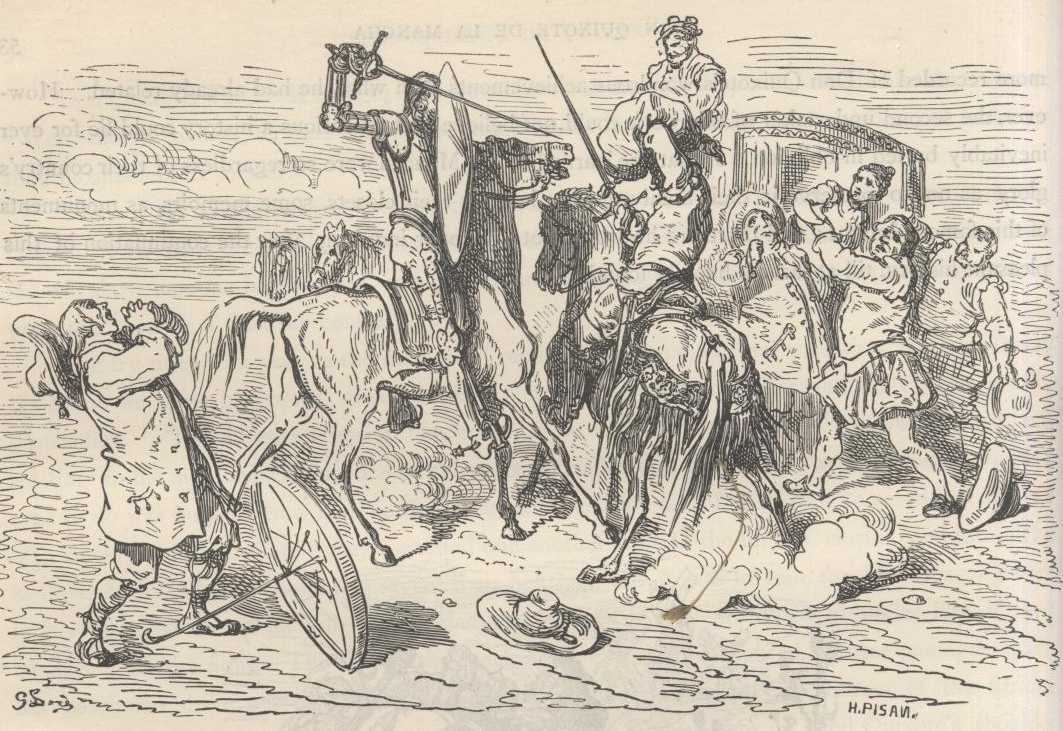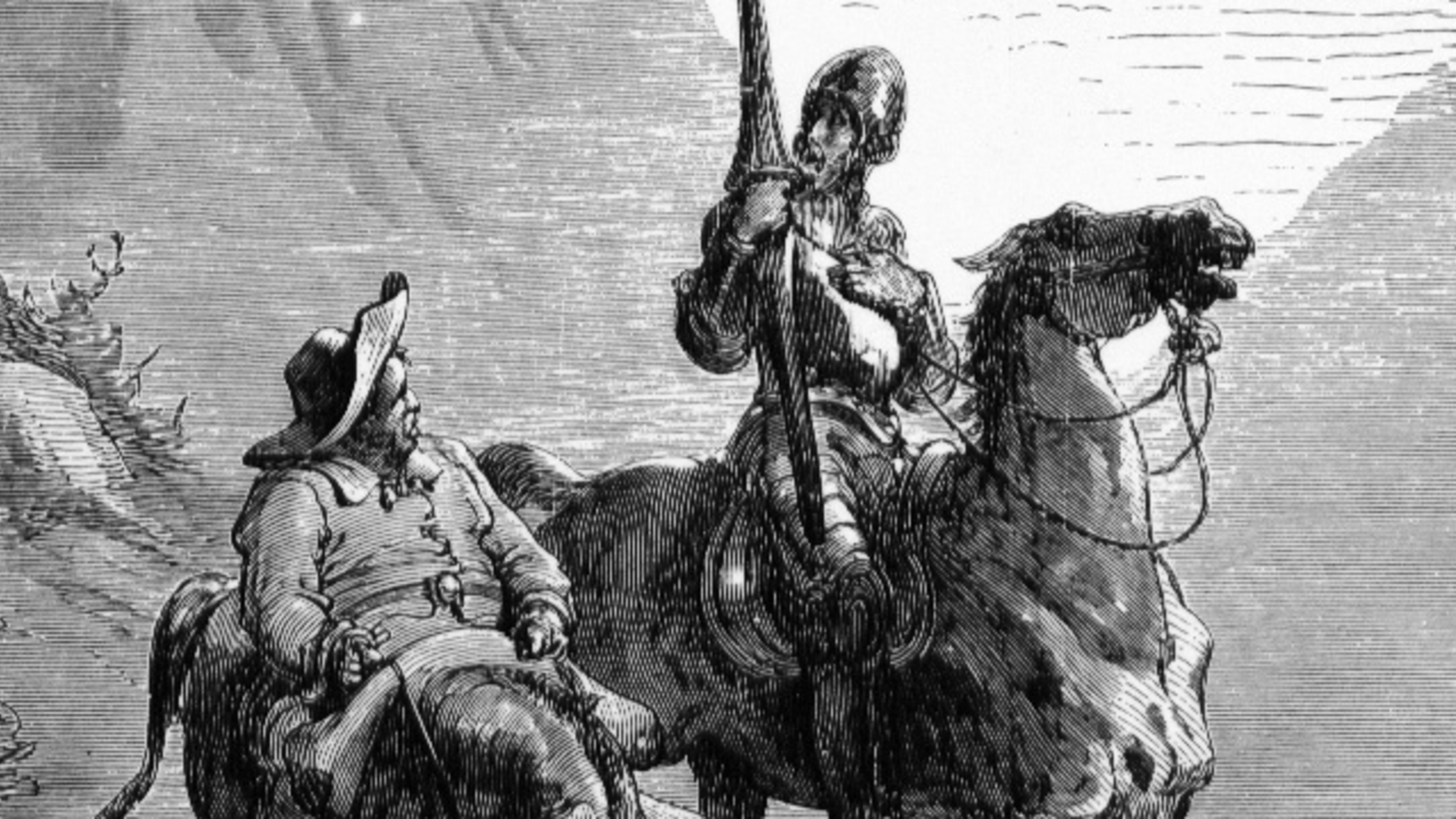Mundabor has an interesting post today that jibes with my current reading.
The Big Emptiness, And How It Connects To The Rise Of Madness
Don Quixote, the premier Spanish novel by Miguel de Cervantes Saavreda, a work filled with Catholic imagery and truth. The work has been distorted and falsified as the tale of a heroic idealist who goes forth as a knight errant to save the world. That's the picture presented in the musical play, The Man of La Mancha, the only idea of Don Quixote most modern readers non-readers have. At the end of the musical, the prostitute Aldonza begs the don to return to his insanity and call back Dulcinea, his idealized lady. At the end of the novel, Don Quixote repents of his sins and dies in the bosom of the Church.
Cervantes' message was completely distorted by the musical. Cervantes did not admire Don Quixote, the madman, or his "squire" Sancho Panza. Quixote is crazy and Cervantes shows that in spades! His insanity is fueled by pride and bad reading practices. Blinded by that pride, he sees himself, like Mundabor's snowflakes, as someone who "believes in something" (no matter how distorted and false) and can go forth feeling good about himself to save the world. His adventures result in inflicting unjust injury on his neighbors (like the rioters) often with injuries to himself (like the man who ended up in the hospital when the statue he was toppling landed on him).
 |
| Don Quixote attacks travelers on the road. |
Sancho Panza is primarily motivated by greed. He hopes to receive the promised "island" (CHAZ? CHOP?) or any lucrative kingdom and to marry his daughter into a noble family when he gets rich. His practical wife, Teresa, argues with him to no avail as he goes off, once again abandoning his family, to join in Quixote's insane ventures.
The mobs, like Don Quixote, embrace false narratives with abandon and go forth to create havoc. Like Don Quixote, they decimate law and order and the Church. (In one scene Don Quixote attacks the soldiers of the king taking a group of prisoners to their punishment in the galleys. He effectively eviscerates the police force. In another, he charges a group of monks taking a body for burial and breaks the leg of the priest. Attacking a cleric is an excommunicable offense, just one of Don Quixote's sins of injustice.
Cervantes was a deeply religious man. He does not hold the aging don up as a hero. Quixote is, plain and simple, crazy! While modern interpreters try to make Cervantes a disillusioned Catholic who used the novel to undermine the culture of the time, a proper reading shows exactly how Catholic the book is. If anything, Quixote illustrates the Protestant rebel mind. Cervantes wrote after the Council of Trent which ushered in the counter-revolution against Protestant errors. (See Rescuing Cervantes by Luis Cortest.)
What an icon for our insane times -- the middle aged Don Quixote tilting at windmills and attacking bladders of wine as giants. His insanity wreaks havoc everywhere he goes. Any reality that fails to meet his distorted view of the world is twisted and described as "enchantment" by enemy sorcerers who want to prevent his success.
I doubt if most of the rioters have ever heard of Don Quixote or his creator, but they show the same arrogant pride about their own ignorant and insane actions. They claim to respect black lives while they embrace the murder of black children in the womb. They claim that "black lives matter" while they destroy black businesses and decimate black neighborhoods. Like Quixote they attack (and even kill) those men and women responsible for maintaining order.
Don Quixote ends up repenting in the end of the novel and dies in the bosom of the Church. Somehow I doubt that salutary end for those wreaking their insane havoc on our poor country.


I'm also reading Don Quixote, and it is very clear that he is a mad man, although I hadn't yet made the connection with the rioters. How appropriate. I will be able to see more connections now as I read. It doesn't make sense to think he is sane, that's for certain.
ReplyDeleteGood essay, Mary Ann. I took a class at a public University on Don Quixote which left out all the catholic references. Thank you for the essay.
ReplyDeletePeace,
Katie